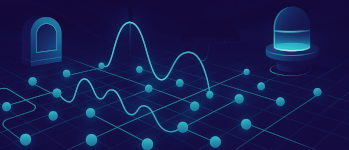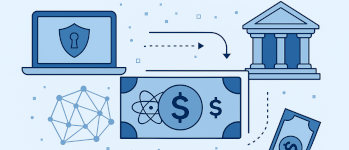We offer university-level quantum computing courses and co-supervision for postgraduate research students. Additionally, we provide hands-on courses in quantum programming and quantum cybersecurity for both beginners and IT professionals.

The Quantum Computing course is offered at the undergraduate level at the university. The course provides a comprehensive understanding of quantum computing principles and their real-world applications, equipping students for research or careers in this advanced field. It begins with a general introduction to quantum computing and linear algebra, covering essential concepts such as quantum bits and operations. Students will explore the fundamentals of quantum algorithms and delve into key algorithms like Grover’s and Shor’s. The course also addresses quantum cryptography, quantum communications, and error correction, concluding with a focus on quantum machine learning. Hands-on programming exercises are integrated throughout to reinforce theoretical concepts and practical skills.

The postgraduate course in quantum algorithms provides a comprehensive exploration of quantum computing theory as it relates to algorithm development. It offers an in-depth examination of quantum algorithm design, including methods and strategies for creating and optimizing these algorithms. The course emphasizes the study of significant quantum algorithms developed to date and commonly used design techniques. Special attention is given to variational approaches and circuits, which are particularly relevant for practical quantum computing applications and quantum machine learning. By the end of this course, students will acquire the knowledge and skills necessary to begin conducting independent research in quantum information science.

This project explores fully quantum learning models that avoid classical optimization. Using tools like oracles, amplitude amplification, and quantum walks, it investigates non-variational methods for structured tasks, aiming to design and simulate circuits for quantum-only ML.

Quantum money is a virtual currency using quantum cryptographic protocols to create and verify banknotes that cannot be forged. This project develops a proof-of-concept online quantum banking system for issuing, verifying, and managing quantum banknotes while exploring potential transaction challenges.

This project explores using Superdense Coding (SDC) in Quantum Key Distribution (QKD) to enhance key transmission. SDC sends two classical bits per qubit via pre-shared Bell pairs. Compared to traditional QKD, it aims to improve rates. The study examines benefits, security, and implementation.

This project explores quantum-resistant cryptography, designed to withstand threats from classical and quantum computers. A key component is random number generation. The study implements and compares classical and quantum algorithms for generating random numbers in quantum-resistant cryptography.

As quantum computers advance, the Quantum Internet is becoming feasible, offering capabilities beyond current networks. A key challenge is long-distance quantum information transfer. This project develops a proof-of-concept and evaluates quantum teleportation as a potential solution to this problem.

This project explores Quantum Graph Neural Networks (QGNNs) for hypothesis generation from biomedical literature. By analyzing complex data, QGNNs can reveal new drug uses, uncover drug-target interactions, and enhance understanding of disease mechanisms, supporting advances in personalized medicine.